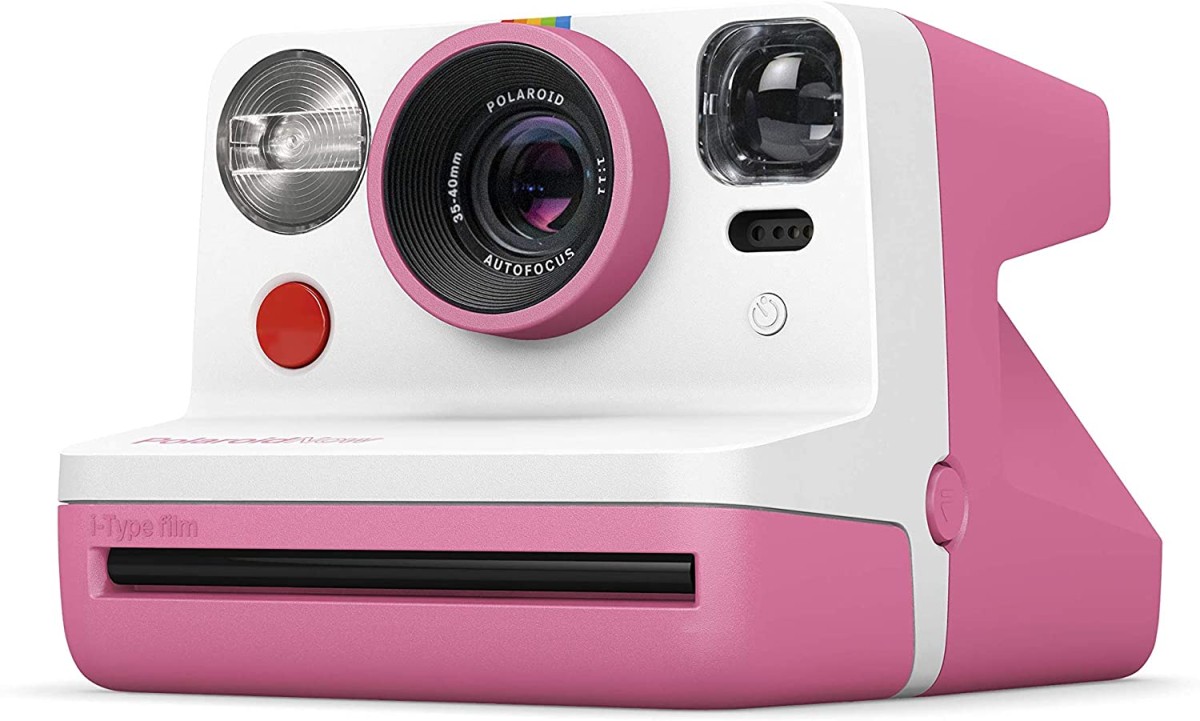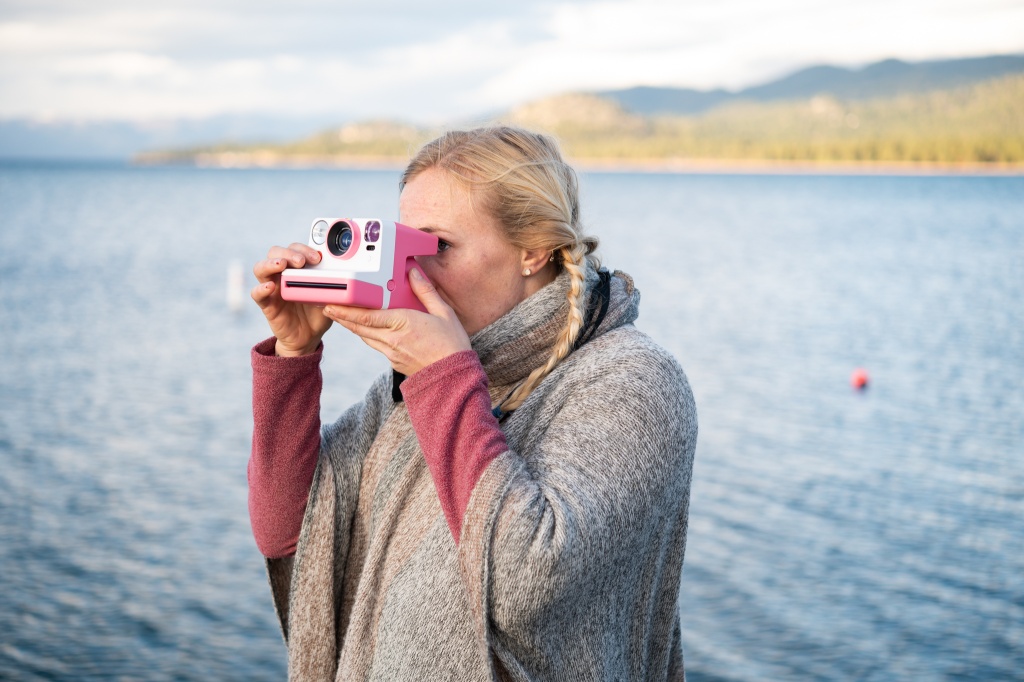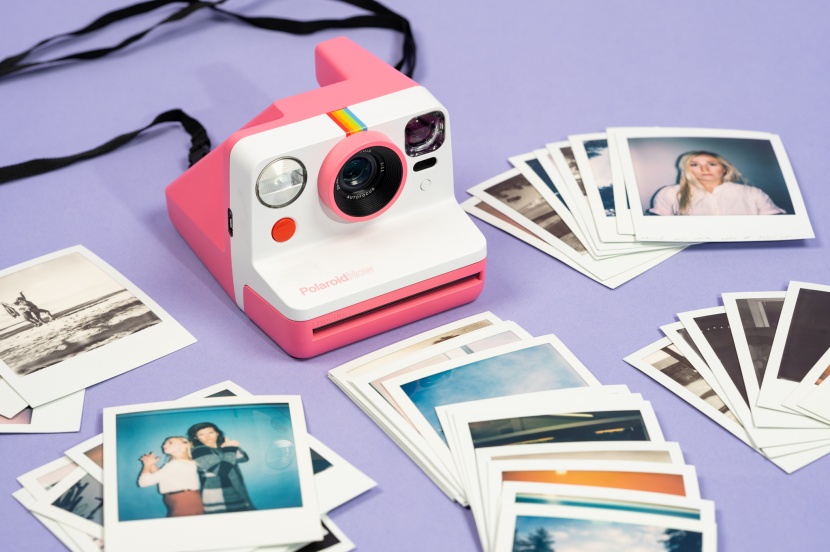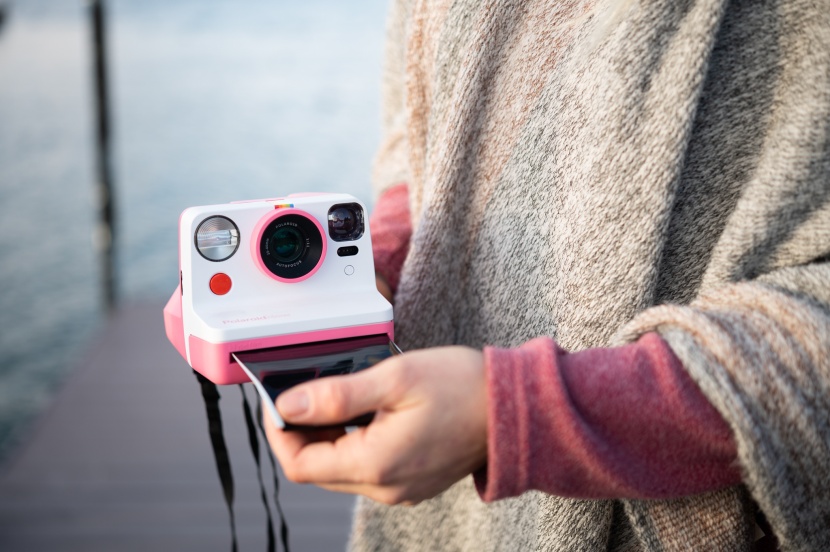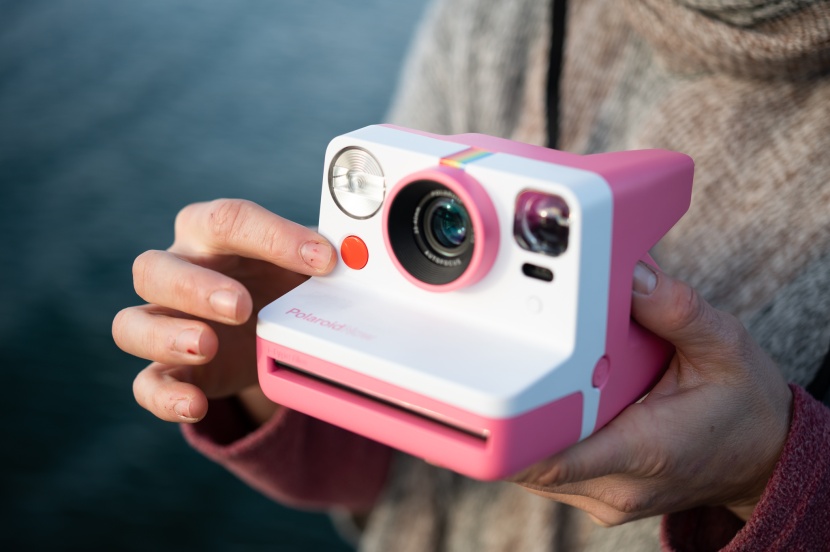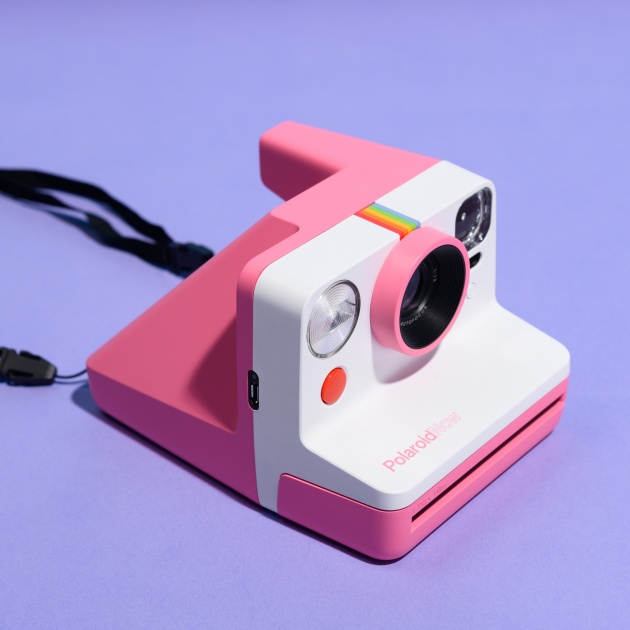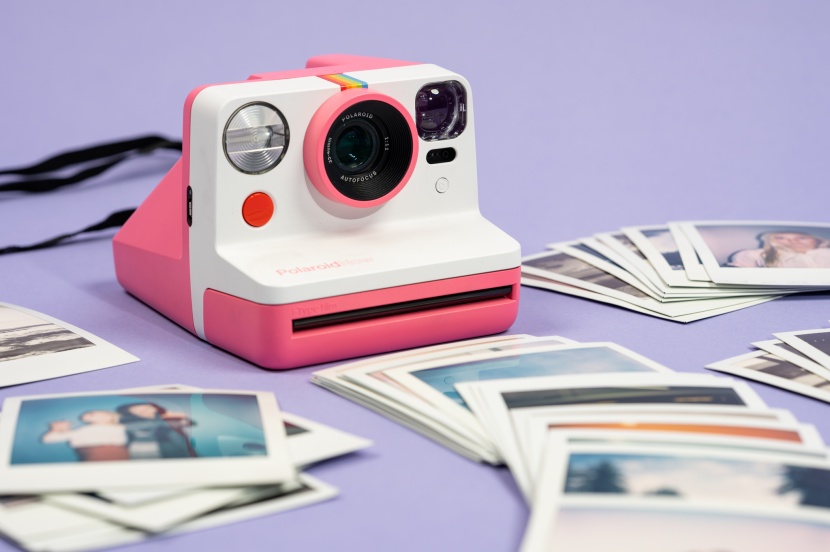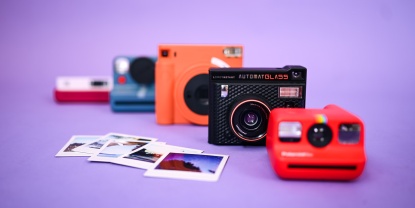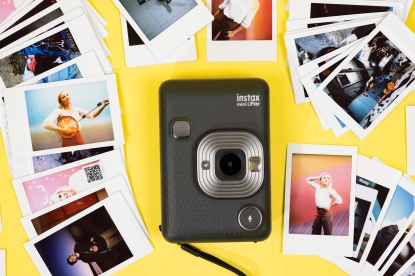Polaroid Now i-Type Review
Our Verdict
Compare to Similar Products
 This Product Polaroid Now i-Type | |||||
|---|---|---|---|---|---|
| Awards | Best Digital Instant Camera | Best Instant Camera for Film | Best Bang for the Buck | ||
| Price | $120 List | $160 List $169.00 at Amazon | $120 List $119.95 at Amazon | $77 List $74.78 at Amazon | $100 List $76.13 at Amazon |
Overall Score  |
|||||
| Star Rating | |||||
| Bottom Line | The look, feel, and fun Polaroid is best known for | An easily transportable hybrid that offers the experience of old with modern updates | A stylish camera that's user-friendly and takes quality photos, making it ideal for sharing with friends to capture the fun at a moment's notice | A great pick for those who want point and shoot simplicity while maintaining that artsy film vibe | Despite a few glitches, this pocket-sized point-and-shoot is an easy pick for those looking for tiny film prints |
| Rating Categories | Polaroid Now i-Type | Fujifilm Instax Min... | Fujifilm Instax Squ... | Fujifilm Instax Min... | Polaroid Go Instant... |
| Image Quality (40%) | |||||
| User Friendliness (30%) | |||||
| Features (15%) | |||||
| Battery (15%) | |||||
| Specifications | Polaroid Now i-Type | Fujifilm Instax Min... | Fujifilm Instax Squ... | Fujifilm Instax Min... | Polaroid Go Instant... |
| Film Cost Per Photo (approx) | $2.12 | $0.50 | $0.90 | $0.85 | $1.25 |
| Film Capacity | 8 shots | 10 shots | 10 shots | 10 shots | 8 shots |
| Battery Capacity | Claimed: 15 packs (or up to 60 days) Tested: Battery never died during our test period, but it started to lack power around 6 packs and self timer wouldn't work without charging |
Claimed: 40 prints per charge Tested: About 5 packs or 50 prints; camera lasted a surpisingly long time when it read as "out of battery" |
Claimed: 30 film packs Tested: never had to change batteries |
Claimed: 100 prints per charge depending on conditions Tested: Accurate; camera was used in a wide variety of conditions (cold, indoor/outdoor, near a heater), and the charge was never drastically affected. |
Claimed: 15 packs (or up to 60 days) Tested: 1 charge lasted throughout testing |
| Power Supply | Built-in rechargeable battery (micro USB) | Built-in rechargeable battery (Micro USB) | 2 CR2 batteries | Built-in rechargeable battery (micro USB) | Built-in rechargeable battery (micro USB) |
| Dimensions (as per manufacturer) | 94 mm x 112 mm x 150 mm | 122 mm x 79 mm x 23 mm | 130.7 mm × 118.6 mm × 57.5 mm | 82.5 mm x 122.9 mm x 36.7 mm (excluding protrusions) | 105mm × 83.9mm × 61.5mm |
| Weight (as per manufacturer) | 15.2 oz (without film pack) | 16 oz | 13.8 oz | 8 oz (without fiilm pack and memory card) | 8.5 oz |
| Picture Size (as per manufacturer) | 88.9 mm x 107mm | 54mm x 86mm | 64mm x 64mm | 62 mm x 46 mm | 66mm x 53.9 mm |
| Image Settings | Double exposure | In-camera filters (monochrome, vintage, aqua), an option for prints to be framed, photobooth option which prints 2 photos on the same sheet | Autofocus | Multiple filters (stylish, B/W, sepia, fish eye, vivid), 10 in-camera frames (antlers, color stripe, light bar, wings, speech bubble, photo inside a photo, comic strip, etc.), 30 frame options through the app, ability to put a time stamp on prints | Autofocus |
| Focus Distances | Autofocus system via 2 fixed focus zones 0.55 m-1.3 m, 0.6 m - infinity | Fixed focus | Zone focus | 3.94 in / 10 cm to infinity | Fixed focus |
| Focal Length | 103 mm standard, 89 mm portrait | 27 mm | 65.75 mm | 28 mm (35mm fiilm equivalent) | 34mm (35mm equivalent) |
| Aperture | f/11 - f/64 | Max f/2.2 | f/12.6 | f/2 | f/12- f/52 |
| Film or Digital | Film | Digital | Film | Film prints, digital camera | Film |
| Film Development Time | 10 to 15 minutes | Automatic digital print | 90 seconds (dependent on ambient temperature) | Around 90 seconds to develop, 12 seconds to print | 10 to 15 minutes |
Our Analysis and Test Results
Relying heavily on its retro style and brand name, the Polaroid Now has a recognizable design with a few updates. Similar to its predecessors, this camera has minimal buttons, making it simple to operate, but the body is bulky and slightly awkward to shoot with compared to current competitors. Like the camera itself, the photos have an old-school feel with muted colors, a soft focus, and vignetting, giving them a vintage vibe. The newer features like a double exposure setting, adjustable flash, and self-timer are definitely nice, but they don't help the images from sometimes coming out blurry or out of focus. Scoring right around average in most of our tests, this camera didn't really stand out in any particular area, but it does deliver that classic instant film experience.
Image Quality
The Polaroid Now came in at the lower end of average in our image quality tests due to the limited and inconsistent range of colors. This caused many of the color prints to look as though they were shot on black and white film. However, when actually using black and white film, the image quality improved, showing more richness in details, a wider range of hues, and better clarity. This camera performed best in ambient indoor lighting and did better during golden hour than in any other outdoor setting, but the clarity was often distorted and details were frequently lost in all other conditions. As a brand that's synonymous with the best instant cameras and that has been making them for well over half a century, it is surprising that Polaroid hasn't done more to improve the quality of its prints.
These days, several brands make cameras with a vintage aesthetic to their design. However, most others have added updates to the functionality of their cameras, allowing them to produce a sharper and more current-looking image. As previously mentioned, the Polaroid Now does produce better quality photos when used with black and white film, but it's a shame that this consistency doesn't carry over to the color prints.
User Friendliness
Having minimal controls and a straightforward interface, we expected the Polaroid Now to be quite user-friendly, and in the most basic sense, it is. But, due to its awkward size and the inconsistency of its prints, it didn't score particularly high. Although the design is similar to a retro Polaroid, which may be appealing for nostalgia's sake, it is rather bulky, making it harder to carry both from the neck strap and in a bag.
This camera is user-friendly in that there aren't many settings to mess with, so it can be easily shared when socializing. However, despite the limited controls, getting a usable print is more difficult than you'd think, as close to half of the shots we took ended up getting thrown out due to blurriness or a lack of color contrast. The Now simply lacks the controls to help it adapt to different lighting and capture scenes realistically. It also didn't score very highly because changing the film packs can be troublesome and sometimes required forceful pulling. That said, for anyone who is more worried about capturing the moment than achieving clarity and accuracy, the Polaroid Now will do a decent job of accomplishing this.
Features
While it doesn't have many features, the Polaroid Now does come equipped with some updated options that add to its fun. The most artistic addition is the double exposure setting, allowing for two frames to be captured in one photo, which is something our parent's Polaroid cameras couldn't do. This camera also has a two-lens autofocus system that adjusts the focal length automatically to help you get the best shot from any distance. The adjustable flash is another welcome addition that gives the user more control and helps the camera adapt to different lighting conditions. Other upgrades include a self-timer, digital shot counter display, and rechargeable battery, which may not improve the photo quality or support creativity, but are nice to have nonetheless.
When compared to its competitors, the Polaroid Now has fewer features than most, placing it toward the bottom third of the pack in this metric. So, even though this camera does have a few updated features, the numerous creative controls provided by the more modern options overshadow it by far.
Battery
Our battery test was the one area where the Polaroid Now did quite well, especially compared to the other rechargeable cameras in our review. We never fully killed the battery on this camera, but it did start to lose power after shooting around six packs of film, and the self-timer wouldn't work until we gave it a brief charge.
Polaroid claims that this camera should last for up to 60 days or 15 packs of film, which we find to be a pretty generous statement, though we didn't push to quite that limit. Either way, the rechargeable battery in this camera held up well through our tests and never died, so the manufacturer's estimate likely isn't too far off.
Value
After our assessment, we found the cost of the Polaroid Now to be slightly expensive but still fair. Considering its average scores across the board, it's fitting that its price tag is also right in the middle. It didn't outshine the others in any area, but it also didn't have any huge malfunctions or problems. The main drawbacks of this camera are that the images are often hazy, and the cost per photo of Polaroid film is more than twice as expensive as any other brand. The double exposure and other features definitely help to up the value from similarly priced models, but it still feels like you're paying extra for the brand name.
Conclusion
Offering classic style and a few fun perks, the Polaroid Now i-Type is simple to use and instantly recognizable. Its old-school look is accompanied by vintage-looking photos that often have a pink tint and a slightly blurry and dreamy feel. This camera performs best when used with monochrome film, as many of the color prints ended up looking black and white due to a lack of color clarity. The minimal controls make it easy to share with friends or loved ones, and it shoots most consistently indoors, where the images often come out moody and artsy. Overall, the Polaroid Now is an enjoyable and reliable camera that produces the classic mementos the brand is known for.


